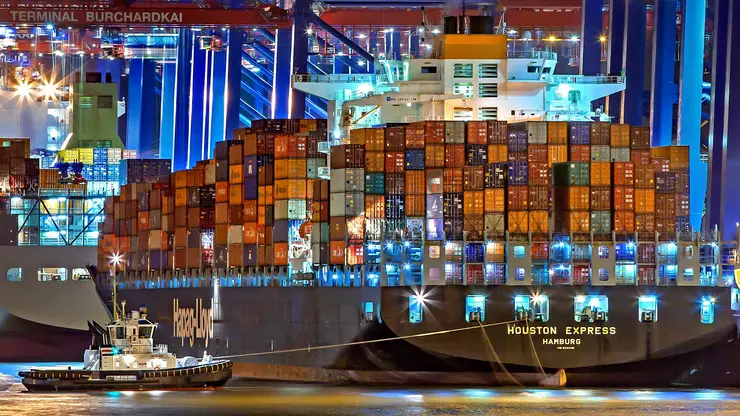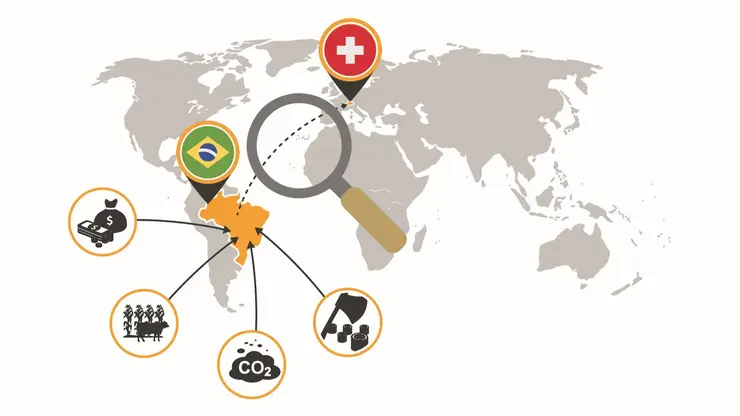Projects at the Life Cycle Assessment research group
-
Extension of the study on life cycle assessments for alternative substrates to peat
The aim of the research study is to extend the study by Eymann et al. (2015) of the Zurich University of Applied Sciences (ZHAW) by selected substrate components and substrate mixtures which, based on defined criteria, have a high potential as peat substitutes. Analogous to the 2015 study, the…
completed, 09/2018 - 08/2020
-
Climate emissions calculation for the ZHAW Green Impact Book
Solution concept for the carbon footprint and implementation since 2017
ongoing, 01/2022 - 12/2025
-
Life cycle assessment of Swiss wine from conventional and organic farming
The consumption of food and beverages causes more than a quarter of an average person’s environmental impact in Switzerland. Apart from meat, fish and dairy products, beverage and semiluxury food – especially spirits and coffee – contribute to a significant share. Over the entire life cycle of wine…
completed, 12/2014 - 04/2016
-
ZHAW Agri-food Database

Life Cycle Inventories for agricultural and food products
completed, 11/2013 - 12/2019
-
Local food for the future (LOFT)
The project aims to improve vertical farming production and operational efficiency by combining innovative production know-how and technologies with enhanced sustainability. The approach will establish the feasibility and profitability of sustainable, year-round production of high-quality crops.
completed, 02/2022 - 01/2025
-
NPower - balancing Nitrogen and Phosphorus flows by budgeting at Regional scale
NPower seeks to effectively recover nitrogen (N) and phosphorus (P) nutrients by implementing circular management strategies across key sectors such as agriculture, water management, transport and energy, industry and other primary sectors. This approach seeks to balance nutrient flows, reduce…
ongoing, 01/2025 - 12/2028
-
Global Greenhouse Impact Model
The carbon footprint of foodstuffs is a key factor for sustainable development of the food sector. One of the major factors contributing to the carbon footprint of foodstuffs is the heating of greenhouses. The required quantity of heating is highly variable depending on production season and local…
completed, 12/2013 - 06/2014
-
Assessment of mineral oil tax relief for synthetic fuels from biological methanation
The debates in 2004-2007 on the tax exemption of fuels from renewable raw materials focused mainly on 1st generation fuels. Consequently, the instruments are also geared to this type of fuel. At that time, however, the legislator made it possible for fuels from renewable energy sources to also…
completed, 09/2018 - 02/2019
-
Campus Challenge Sustainability Exchange
It is undisputed that every human being must make his or her contribution if global warming is to be limited to less than 1.5 degrees. However, neither research nor practice is clear about which behavioral patterns are best for each individual. It is also unclear how people are ultimately to get…
completed, 01/2020 - 12/2021
-
ShopHero
Food Waste Quantification in Households
completed, 01/2021 - 12/2022
-
Remote Sensing Metrics for Life Cycle Assessment (RSM4LCA) (RSM4LCA)
completed, 01/2022 - 12/2022
-
Multifuel SOFC system with Maritime Energy Vectors (FuelSOME)

FuelSOME’s vision is to make a substantial contribution to the required drastic reduction of Greenhouse gases (GHG) emissions from global shipping (climate change mitigation) with a reduction of air pollutants, such as NOx, SOX, and pollution prevention and control, at the same time. The future…
ongoing, 09/2022 - 08/2026
-
CYCLEWIND - Harmonised Life Cycle Assessment for Wind Power
Within the International Energy Agency (IEA) Wind Technology Collaboration Programme (TCP), a new Task is proposed under the heading CYCLEWIND: Harmonised Life Cycle Assessment for Wind Power. Currently, there is no Task within the IEA Wind TCP, that is focusing on the environmental sustainability…
ongoing, 01/2025 - 12/2028
-
EAT-IT
CO2 Eaternity Analysis Tool - Information and transparency for CO2
completed, 07/2015 - 09/2016
-
TRANSFOOD – IMPROVING SUSTAINABILITY IMPACTS OF TRANSNATIONAL FOOD VALUE CHAINS

Globalisation of the food trade leads to various impacts on the economy, the environment, and society. Emerging economies that have expanded their agricultural trade and have become net agricultural exporters are particularly affected. The proposed research collaboration aims at combining…
completed, 12/2017 - 12/2018
-
Life Cycle Sustainability Assessment (LCSA) (LCSA)
completed, 01/2020 - 12/2020
-
Renewable Methene for Transport and Mobility
Power to gas allows using excess renewable electricity to produce Hydrogen and to transform it to renewable methane. Methane can be used to drive natural gas vehicles. The processes described use building blocks made of existing technologies, link the grids for electricity and natural gas and make…
completed, 10/2014 - 12/2017
-
PV2050: Sustainability, market deployment and interaction to the grid – the impacts of advanced PV solutions
The opportunities for photovoltaic (PV) solar energy conversion to support the requested transition for the realization of the Energy Strategy 2050 are widely recognized. However, if PV is to make a significant contribution to satisfy global energy requirements, issues of sustainability need to be…
completed, 12/2014 - 11/2018
-
Innovation Booster Applied Circular Sustainability
From 2021 to 2024, the Innovation Booster (IB) Applied Circular Sustainability supports the pre-development of radical solution ideas for 100% recyclable products and systems - and this for all industries and economic sectors in Switzerland.
completed, 01/2021 - 12/2024
-
Environmental and Social Assessment at Mine Sites using Remote Sensing and Geoinformatics
completed, 05/2021 - 12/2021
